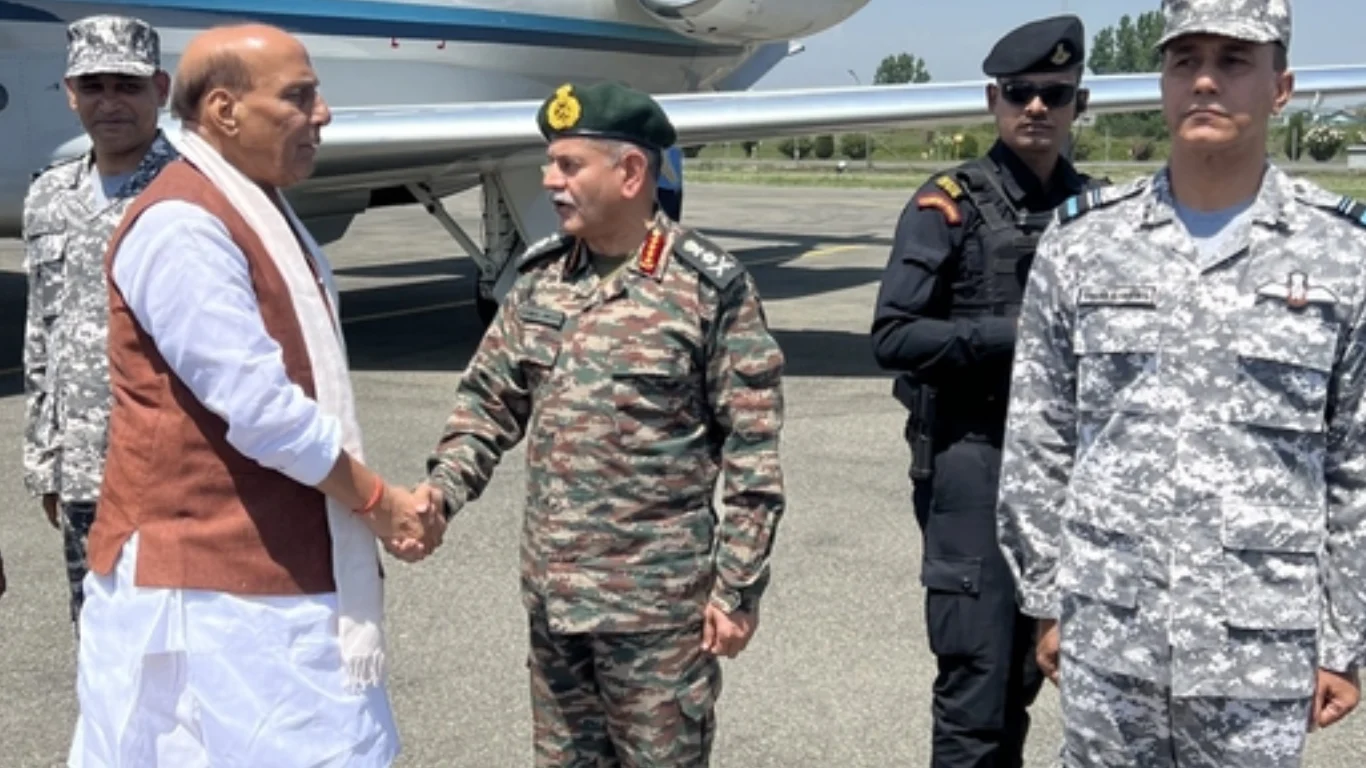
During a significant visit to Jammu and Kashmir on Thursday, Defence Minister Rajnath Singh made a strong appeal for international intervention, urging the International Atomic Energy Agency (IAEA) to take control of Pakistan’s nuclear weapons. His statement came amid a backdrop of renewed tensions between India and Pakistan, following the most serious military confrontation between the two nuclear-armed neighbours in nearly three decades. Addressing Indian soldiers at the Badami Bagh Cantonment in Srinagar, Singh voiced deep concern over what he described as Pakistan’s reckless handling of its nuclear arsenal. He questioned whether such dangerous weapons could truly be considered safe in the hands of what he called an “irresponsible and rogue nation.”
Singh warned that the world had witnessed repeated nuclear blackmail from Pakistan and stressed that such behavior must prompt immediate international scrutiny and regulation. Citing the threat posed not just to India but to global peace and stability, he underscored the importance of the IAEA stepping in to supervise and regulate Pakistan’s nuclear assets to prevent misuse or escalation. He framed the issue not as a bilateral concern but a matter of international security, arguing that nuclear weapons must not remain under the control of a state that uses them as tools of coercion.
The Defence Minister’s comments came as he took stock of the security situation along the Line of Control (LoC) and the International Border, areas that have seen intense cross-border fire and military operations in recent weeks. He praised the Indian Army for its professionalism and pinpoint precision, referencing the success of Operation Sindoor—a mission that targeted terror launchpads and key enemy positions across the border in Pakistan and Pakistan-occupied Kashmir. Singh attributed the mission’s success to the strategic guidance of Prime Minister Narendra Modi and the extraordinary capabilities of India’s armed forces.
He noted that India’s response to threats has been swift, measured, and effective, demonstrating that the country will not be intimidated by nuclear threats. He further pointed out that India’s firm stance was evident in its decision to respond militarily without yielding to Pakistan’s nuclear sabre-rattling, sending a clear message that India would act decisively to protect its sovereignty and people.
Moreover, Singh commended the people of Jammu and Kashmir for their unity and unwavering opposition to terrorism and external aggression. He praised their growing resilience and political clarity, describing the local population’s response to recent provocations as a powerful statement of patriotism and solidarity with the nation’s armed forces. “The country is proud of what you did during Operation Sindoor,” Singh told the soldiers, adding that the people of Jammu and Kashmir had shown their anger and determination in the face of repeated aggression from across the border. He stressed that this unity between citizens and soldiers served as a cornerstone of India’s internal strength and resilience.
Singh’s speech also carried an emotional undertone, as he spoke not only as a defence minister but as a proud citizen who stood with the armed forces in their mission to safeguard national security. His visit and remarks reflect India’s broader strategic shift toward deterrence through strength and assertive diplomacy, where military action is backed by international appeals for accountability and oversight in the region. The call for IAEA intervention, therefore, marks a diplomatic escalation, signaling India’s intent to frame Pakistan’s nuclear posture as a global threat and not just a bilateral concern. It highlights the gravity with which India views the current geopolitical climate and its commitment to engaging both militarily and diplomatically to address emerging threats.

















